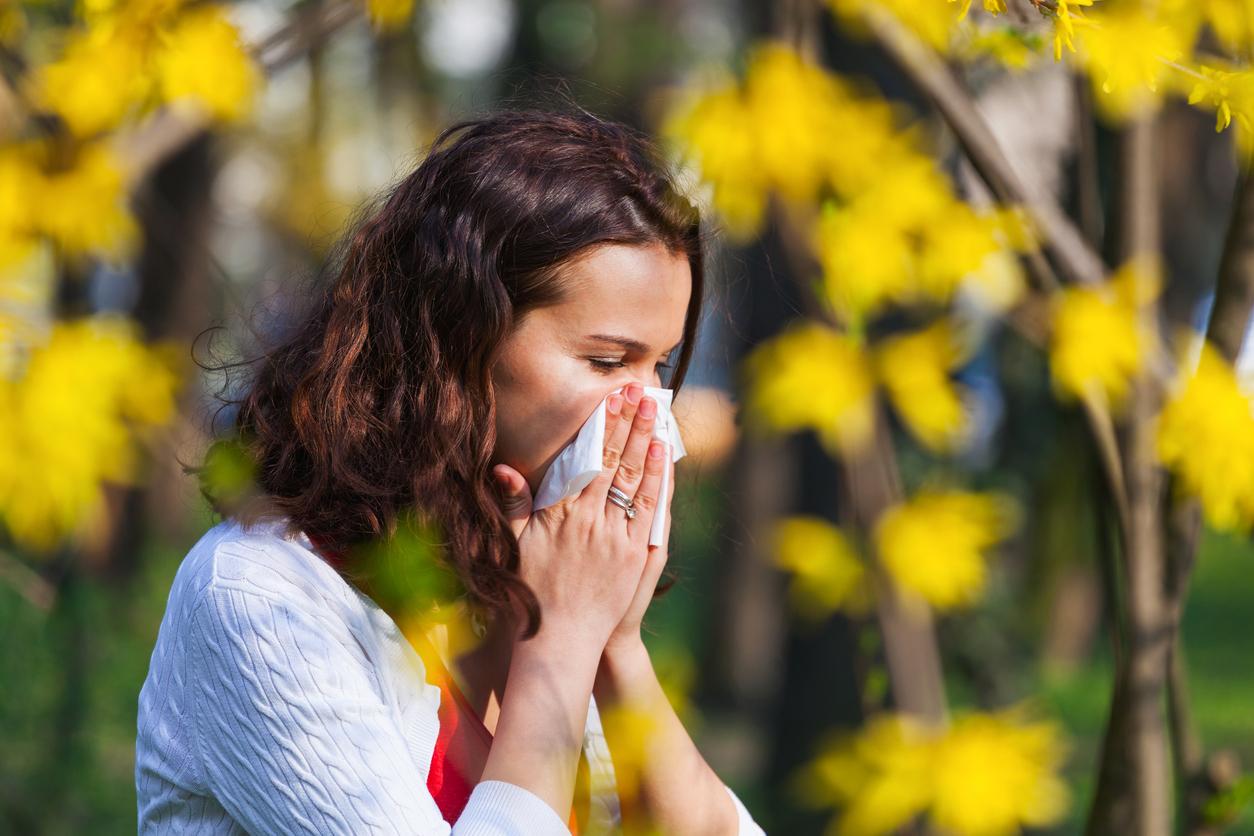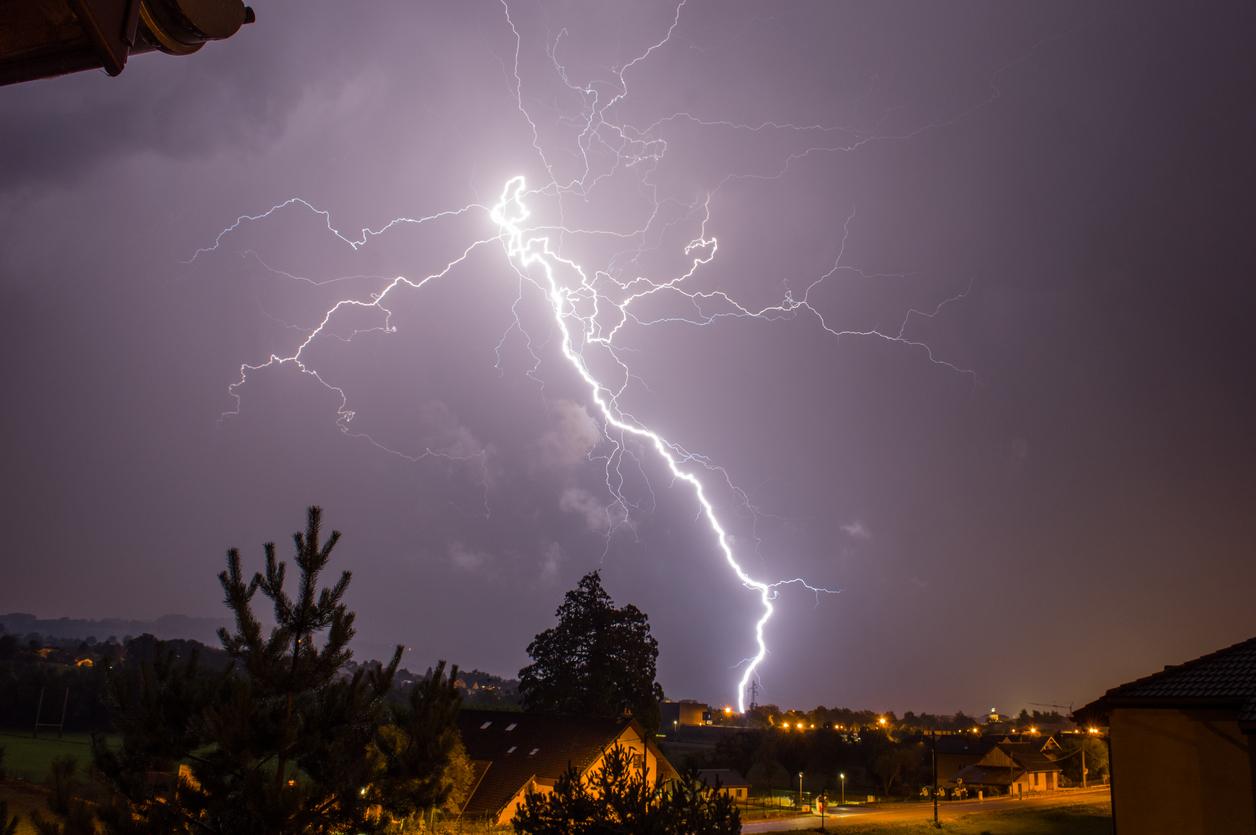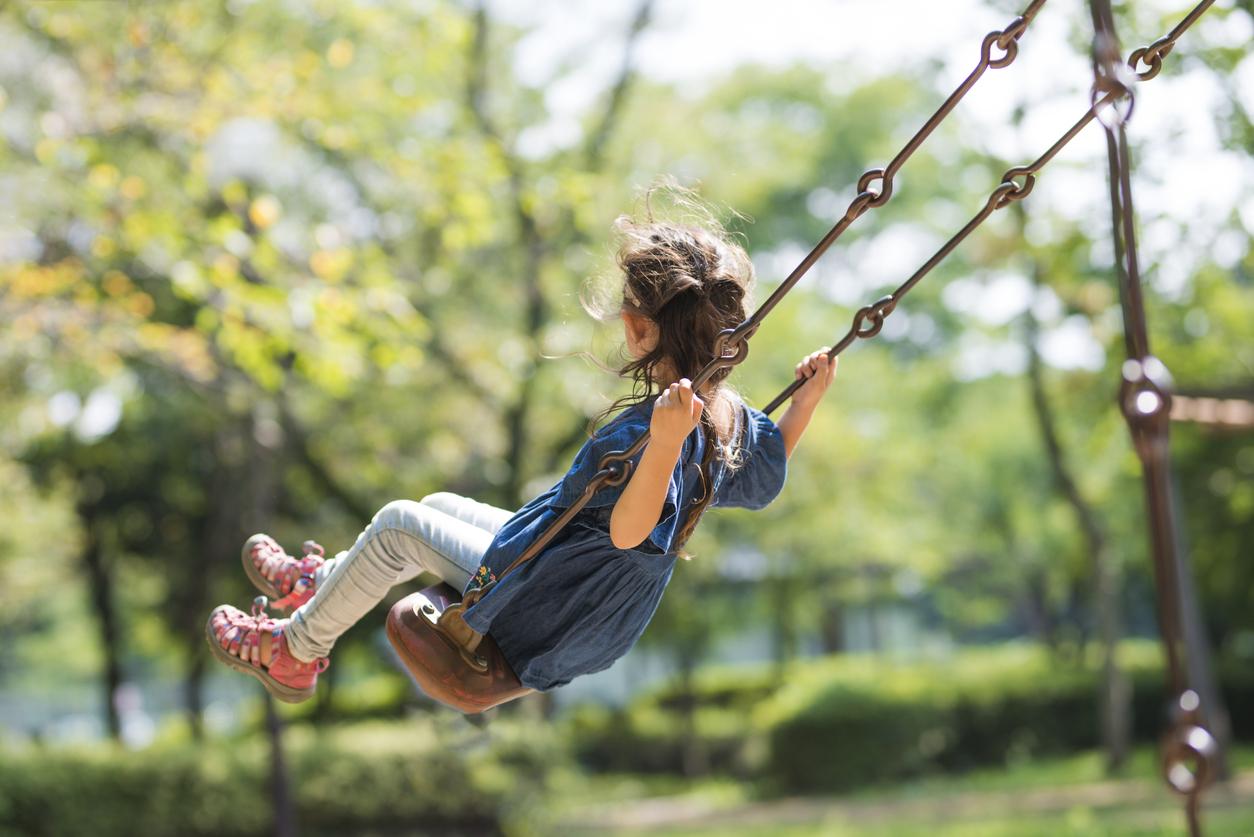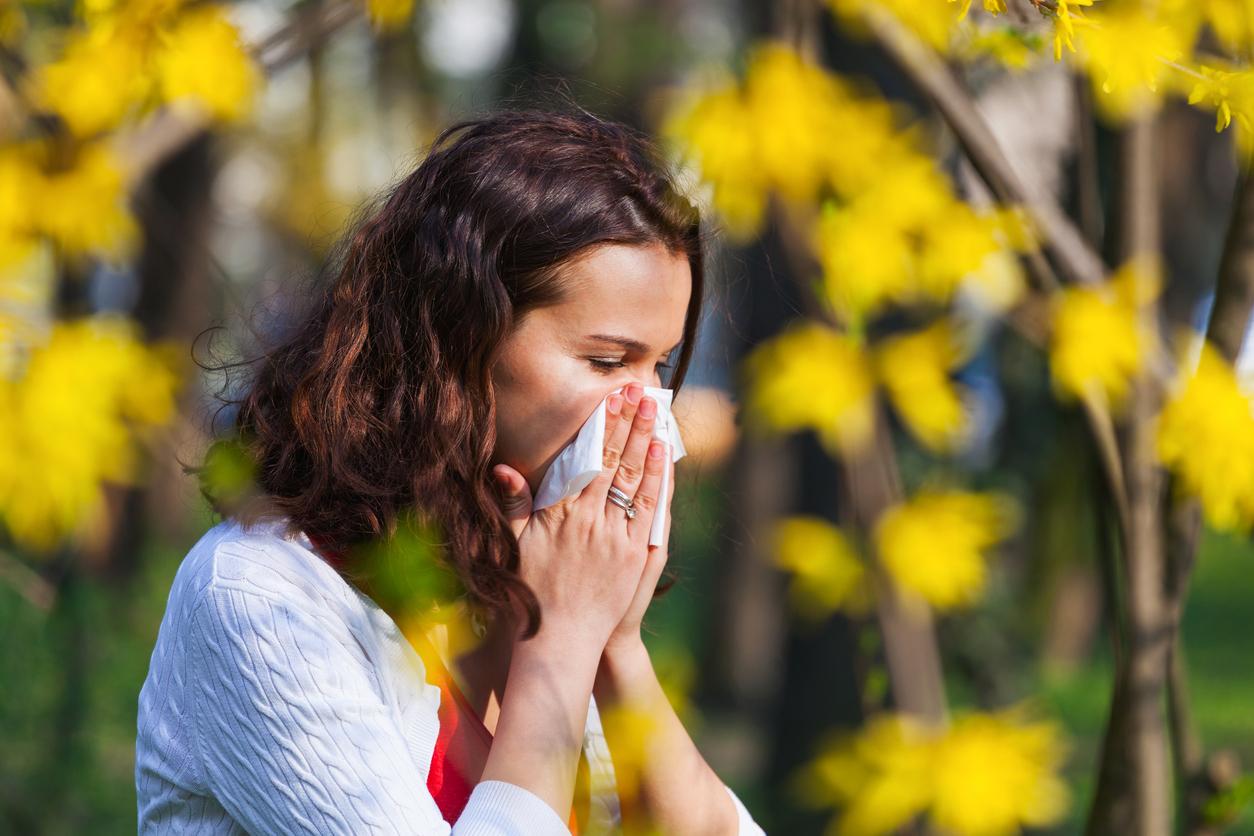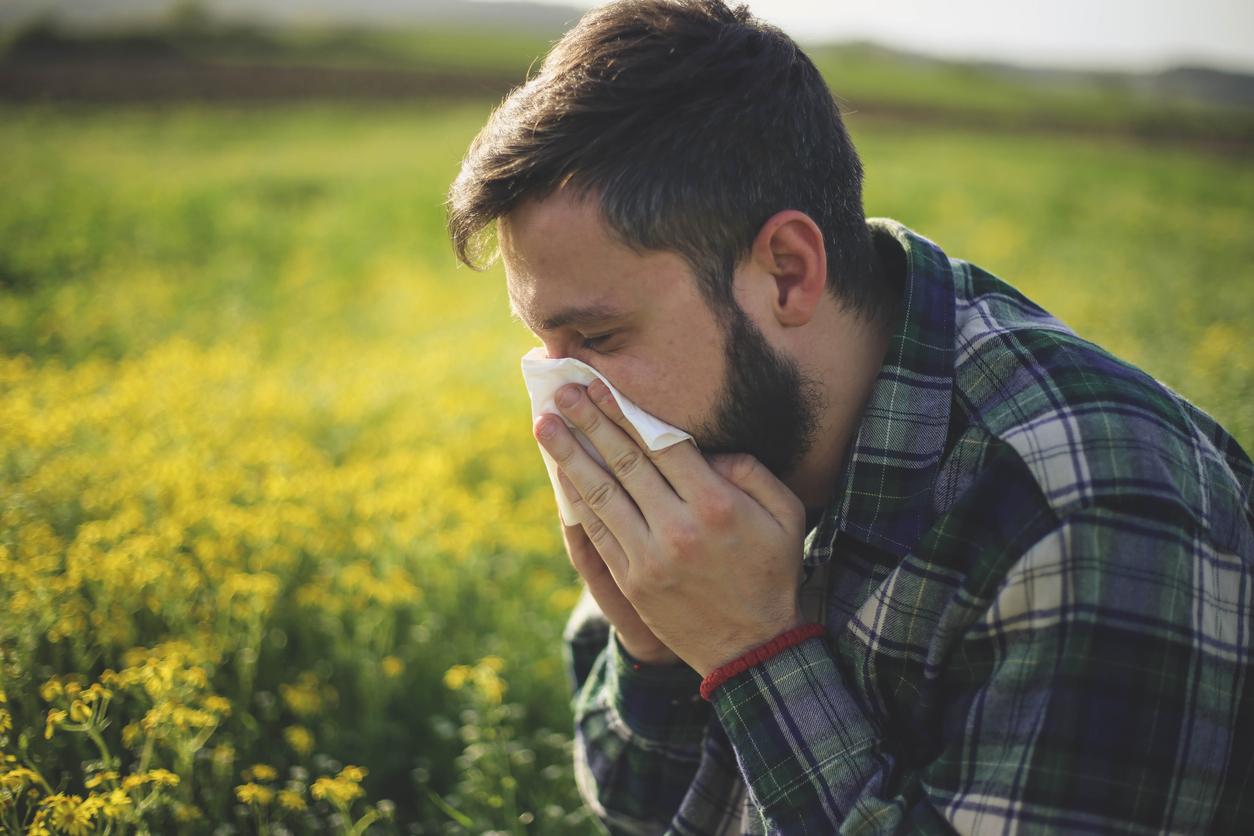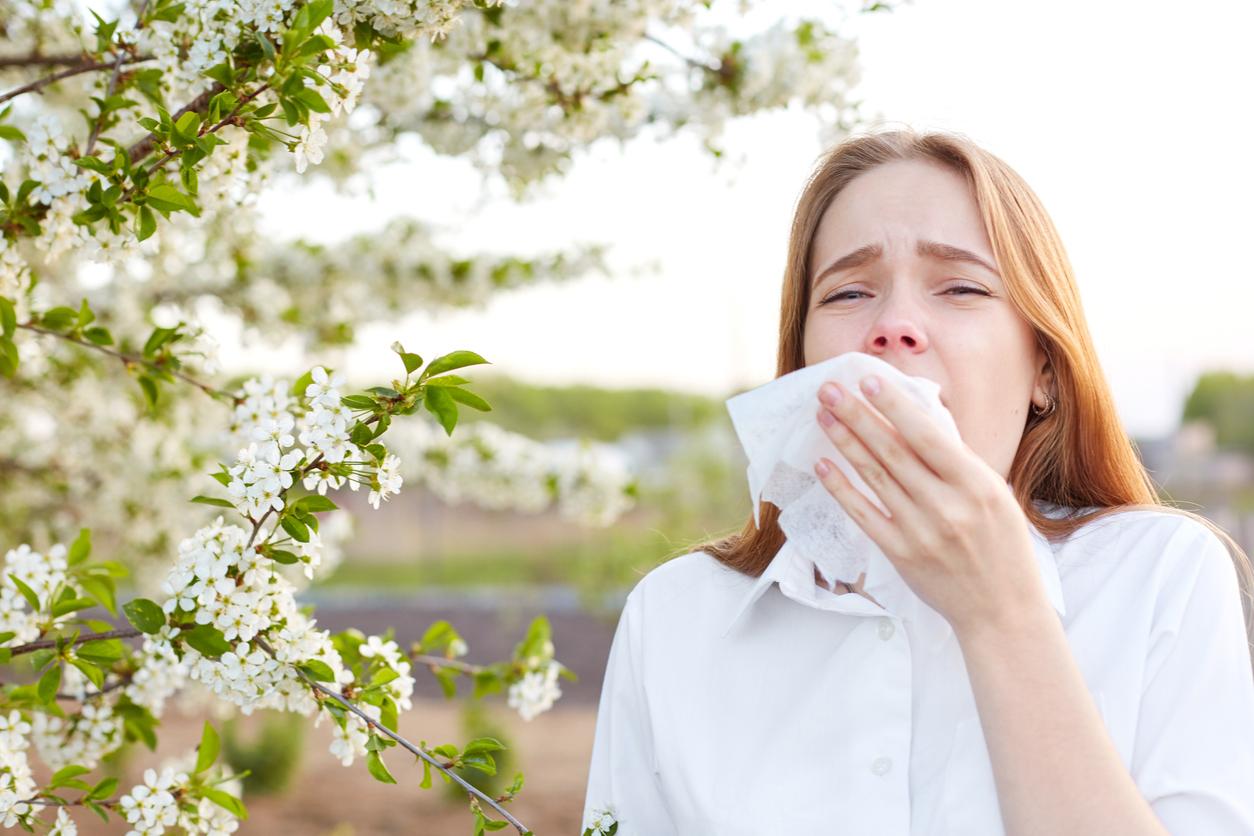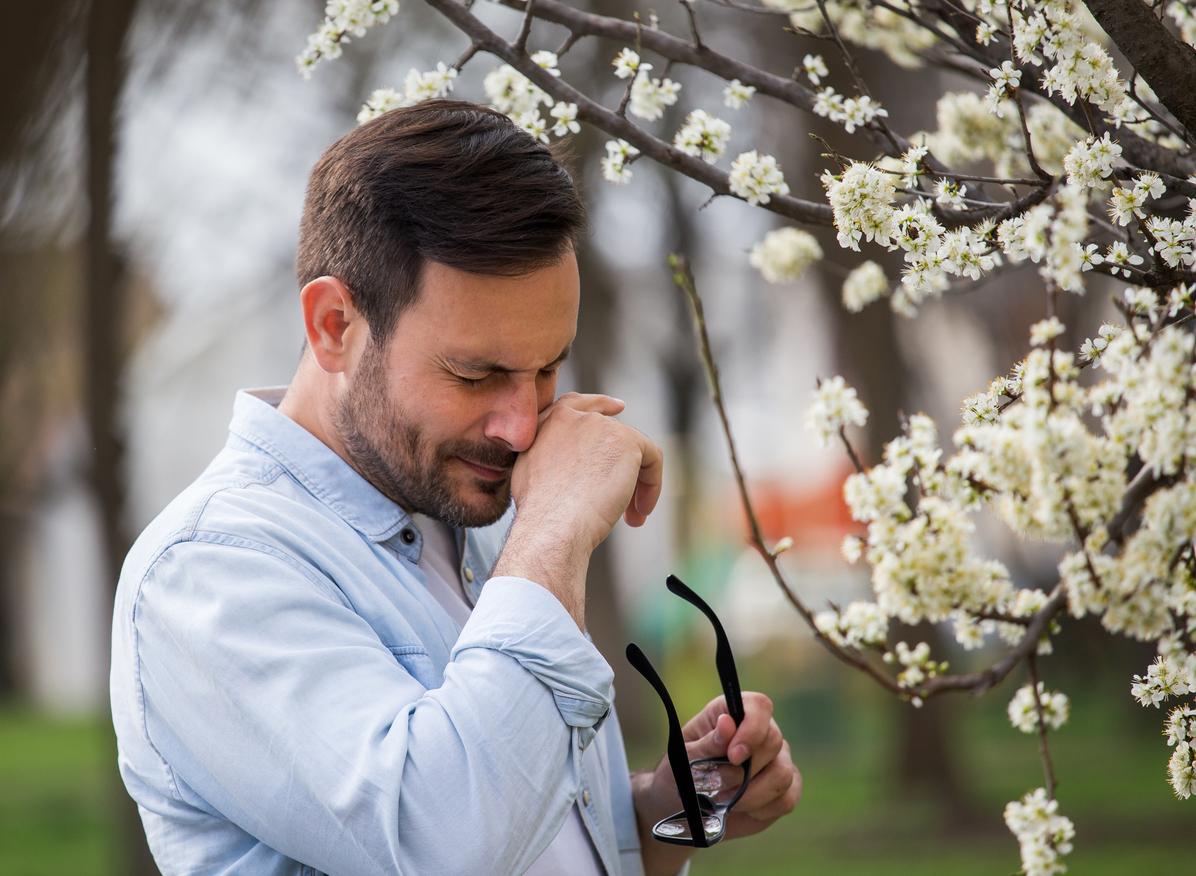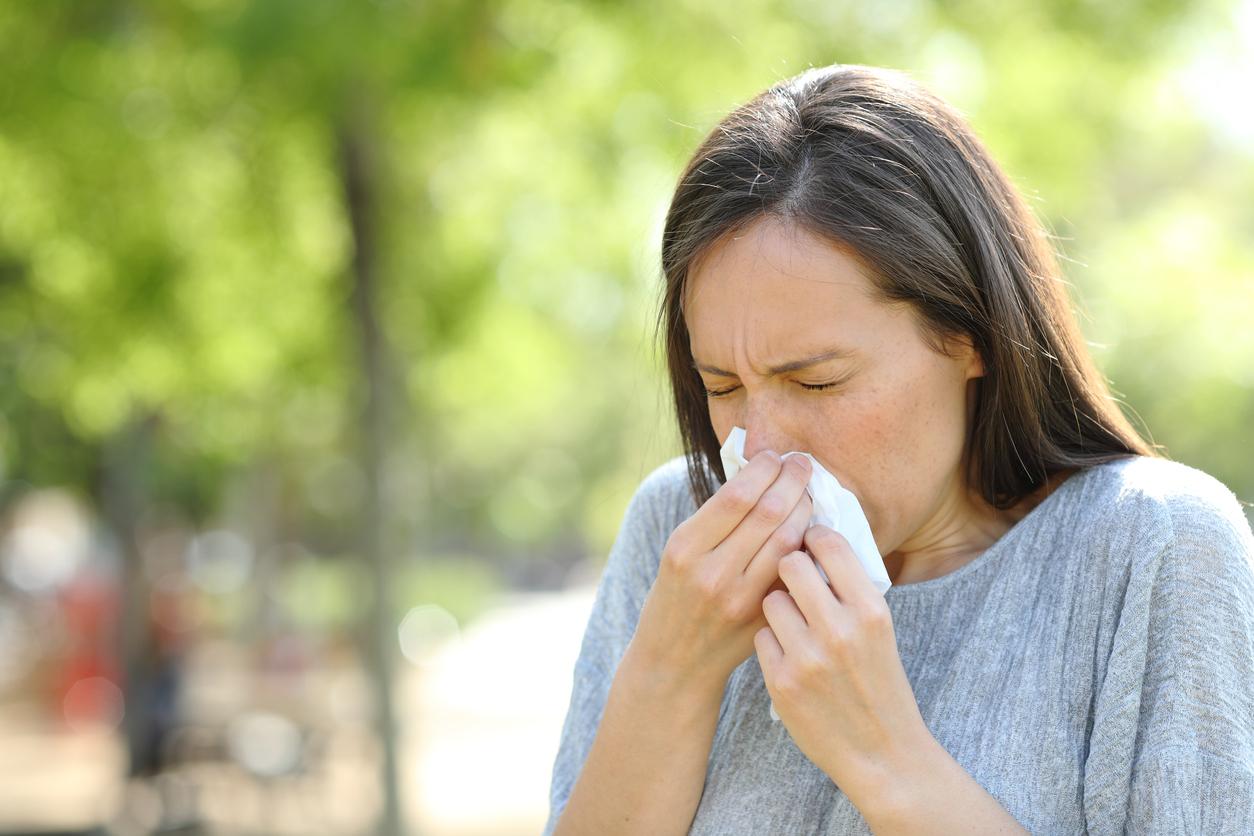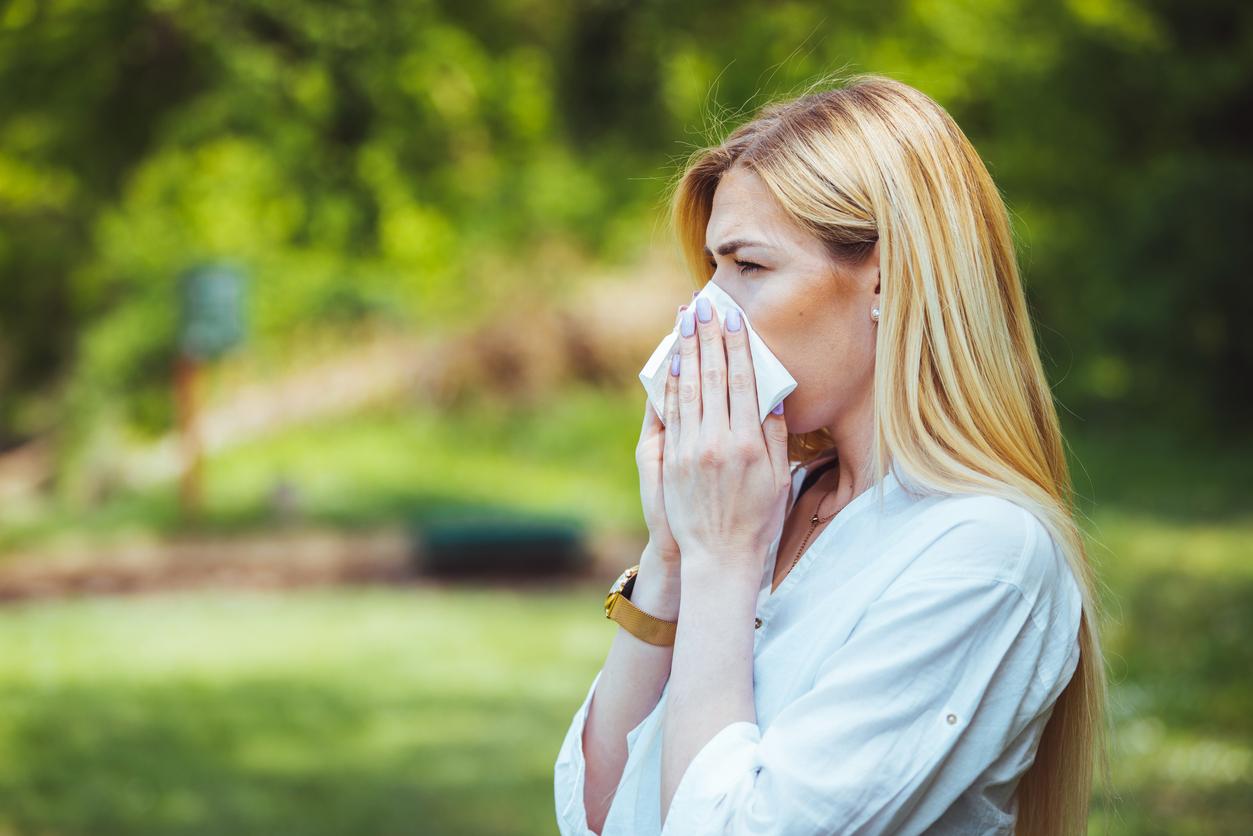Pollinosis, commonly referred to as pollen allergy or “hay fever” is one of the causes of allergic rhinitis. Allergic rhinitis is an overreaction of the immune system which recognizes an allergen as an “enemy”. It then releases histamine which causes inflammation of the lining of the nose, throat and eyes.
The main allergens involved are: pollens (flowers, trees, grass, grasses) but can also be dust mites, animal hair or feathers, household dust, mold, etc.
Ragweed pollen, an invasive plant that is particularly abundant in the South of France, is one of the most formidable allergens. Indeed, it only takes five grains of pollen per cubic meter of air for symptoms to appear in allergic patients. In the South East, grubbing campaigns are regularly organized to fight against this scourge.
The alert bulletin published by the national aerobiological surveillance network (RNSA) announced the first peak of pollen emission of ragweed from August 12 to 17 in the Lyon region. Nevertheless, many peaks can still occur by the end of the summer. So to better protect yourself against pollens, the allergist Pascal Bousquier offers you some simple tips:
1. Wear a hat and sunglasses
Glasses are essential to protect the eyes from the sun … but also from allergens. The hat, meanwhile, helps to limit the aggression of pollen.
2. Bathing intelligently
Wet hair retains pollen and can therefore worsen allergic symptoms.
Swimming is best done early in the morning or before going to bed to make the most of the benefits of cool water.
3. Take a shower in the evening
After a long day spent outdoors, the hair has captured the maximum amount of pollen. Taking a shower at night is a good way to get rid of it easily to avoid contaminating the pillow.
4. Maintain air conditioning
An excellent way for people with pollen allergies to live and work, air conditioning must be properly maintained so as not to be contaminated by allergenic bacteria or mold. Be careful, too cold a temperature worsens allergic rhinitis, even in the absence of pollen.
5. Avoid drying clothes outside.
While the weather is ideal for drying laundry in direct sunlight, wet laundry easily picks up pollens in the air. Drying it in a closed room is therefore better if you want to avoid allergies.
Pollen allergy affects 40% of Europeans
Globally, around 400 to 500 million people are affected by allergic rhinitis, 40% of which are children. In France, more than one in three people say they have an allergy! All the more reason to take precautions before going to enjoy the sun.
Source: ALK press release
Read also :
We finally know the origin of pollen allergy
Women are more affected by allergies
Allergy: a disease too often overlooked









